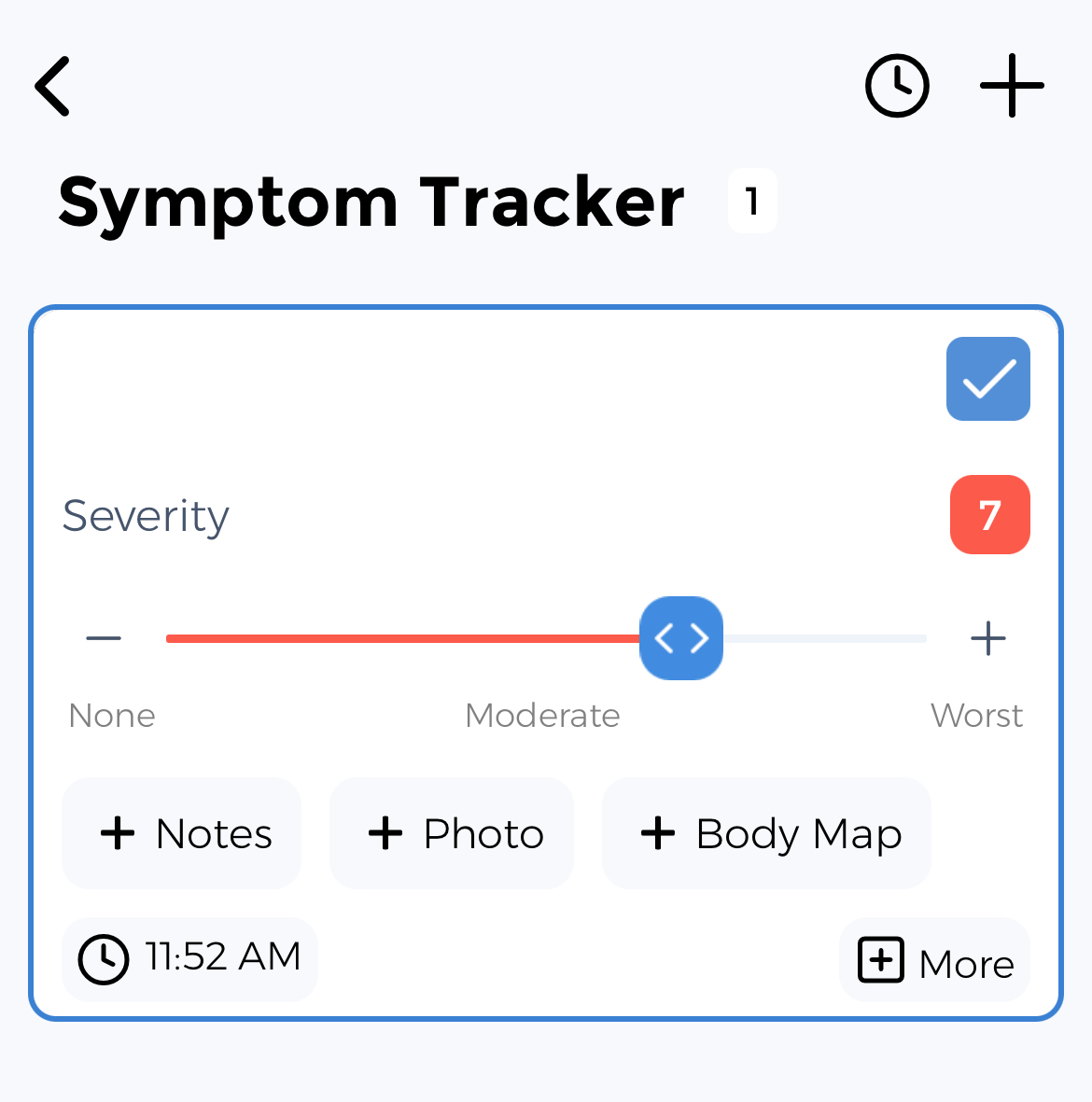Coarctation of Aorta Symptom Tracker: Your Health Assistant
Living with Coarctation of Aorta means dealing with high blood pressure, headaches, dizziness, and more. But here's the truth: Data is your most powerful tool. Every logged symptom reveals patterns—so you can take informed action.
Coarctation of the aorta is a congenital heart defect involving a narrowing of the aorta, the main artery carrying oxygen-rich blood from the heart to the body. This narrowing obstructs blood flow to the lower body and increases blood pressure in the upper body. Tracking symptoms helps monitor blood pressure control and detect complications requiring intervention.
Key Coarctation of Aorta Symptoms You Should Track
Struggling with symptoms like these? Tracking them reveals patterns, triggers, and how they impact your daily life.
High blood pressure
Headaches
Dizziness
Shortness of breath
Leg fatigue
Chest pain
Cold feet or legs
Nosebleeds
Leg cramps with exercise
Weak pulses in the legs
Heart murmur
Track Your Coarctation of Aorta Treatments
Tracking how these common treatments affect your symptoms can help you and your healthcare provider optimize your care plan:
Our tracker helps you monitor when you take medications and how they affect your symptoms over time.
Standardized Coarctation of Aorta Assessments
Complete these evidence-based assessments in the App to measure your severity and monitor your progress:
⚡ Knowledge Is Your Superpower
The difference between feeling overwhelmed by Coarctation of Aorta and feeling in control starts with data. When you track your symptoms, you transform uncertainty into clarity. Every data point brings you closer to understanding your unique patterns.
It's free to try for anyone—whether you're managing your own condition, supporting a child, helping an aging parent, or assisting a partner. Our tracker adapts to your specific role in the health journey.
How the CareClinic Coarctation of Aorta Symptom Tracker Adapts to Your Needs
Adults
Caregivers
Parents of Children
Young Adults
Your Complete Coarctation of Aorta Management Toolkit
Uncover Patterns & Insights
Map your Coarctation of Aorta symptoms like a detective solving a case.
Understand Your Medication's Impact
Turn guesswork into strategy. See how treatments affect your well-being with clear health insights.
Objectively Measure Your Progress
Use clinically validated tools to objectively measure your progress.
Other Tools You May Like...
Plus 3 more specialized tracking tools available
Access All Tracking ToolsAlso Supports Other Conditions Like
Bicuspid Aortic Valve Tracker
Bicuspid Aortic Valve warriors use our tracker to monitor fatigue, shortness of breath.
Aortic Valve Stenosis Tracker
Aortic Valve Stenosis warriors use our tracker to monitor chest pain, shortness of breath.
Turner Syndrome Tracker
Turner Syndrome warriors use our tracker to monitor short stature, delayed puberty.
Hypertension Tracker
Hypertension warriors use our tracker to monitor headaches, shortness of breath.
Success Stories from Our Community
"Using the various trackers together gave me a complete picture of my Coarctation of Aorta. The symptom tracker made it easy to spot connections between headaches and stress, while the lower extremity temperature tracker showed me how to improve my daily management."
"I'd been dealing with Coarctation of Aorta for 3 years when I found this tracker. Within weeks, I connected that My nosebleeds improved dramatically when I adjusted medication timing, which was revolutionary."
Take Control of Your Coarctation of Aorta Journey
Transform from feeling like a passive patient to becoming an informed self-advocate. Join thousands who've discovered new insights about their condition.
Designed by people who understand the daily challenges of managing chronic conditions, we're here to support you and your ❤️ ones.
Download Your Coarctation of Aorta Tracker NowYour Data is Protected
Private & Secure
HIPAA Compliant
GDPR Compliant
Never Sell Data
Your data is yours: You get full control over who can view your information. CareClinic keeps all your data secure and encrypted.
References based on studies by:

